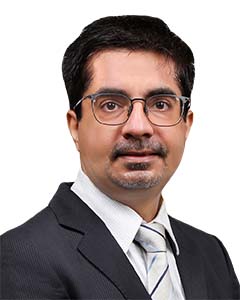The improvement of corporate governance norms of banks has been on the agenda for many years. However, after egregious irregularities and misconduct at the highest levels were found at some well-known banks and non-banking financial companies, the need for better administration and the closure of gaps in their management acquired greater urgency.

Partner
HSA Advocates
In June 2020, the Reserve Bank of India (RBI) issued a discussion paper on Governance in Commercial Banks in India, and invited discussion and feedback. The paper followed the format of corporate governance principles for banks issued by the Basel Committee on Banking Supervision in 2015. On 26 April 2021, the RBI released the circular, Corporate Governance in Banks – Appointment of Directors and Constitution of Committees of the Board (circular) to commercial banks, other than local area banks, payments banks and regional rural banks. This sets out requirements such as the composition of boards, their key committees, the conduct of meetings, and the tenure and remuneration of committee members. The circular applies only to specified categories of commercial banks, including private sector banks and wholly owned subsidiaries of foreign banks, and anticipates the comprehensive master direction on governance that the RBI is expected to issue later this year.
While the circular drew much attention for the cap on the tenure of managing directors and chief executive officers of commercial banks, it outlined many equally significant requirements regarding the responsibilities of independent directors to their boards and to the three key board committees of audit, risk management, and nomination and remuneration. The circular tightens the corporate governance norms, which appear to be more stringent than the provisions of the Securities and Exchange Board of India (Listing Obligations and Disclosure Requirements) Regulations, 2015. A private bank that is also a listed company is also required to adhere to the provisions of the regulations, and must ensure compliance with them in such a way as would not breach the requirements of the circular, where those requirements are more stringent.

Associate
HSA Advocates
Key requirements set out in the circular regarding independent directors are that the board should always be chaired by an independent director and, that where there is no permanent chair, each meeting of the board must be chaired by an independent director and at least half of the directors attending any board meeting should be independent directors. Meetings of the audit and risk management committees must always be chaired by an independent director and such director cannot chair any other committee of the board. At least half of the directors attending a meeting of the risk management committee should be independent directors, with at least one of them possessing professional expertise or qualification in risk management.
The circular propels banks towards decision-making with the unprecedented involvement of independent directors. However, the more the independent directors become involved in the functioning of banks, the more they risk of becoming implicated in transgressions within or involving the banks. A case in point is the increased scrutiny by the investigative agencies over the past few years of the actions of directors. Courts and tribunals have more frequently made directors liable for lapses. In cases of fraud, the actions and omissions of independent directors have not been exempted from penal orders as exemplified by the freeze of personal assets of the independent directors of Jaiprakash Associates Ltd by the Supreme Court, and by the National Company Law Appellate Tribunal in the PNB-Nirav Modi scam.
Requiring independent directors on specific committees to possess relevant qualifications and experience is a step towards ensuring that those appointed to such roles will be in a better position to discharge their responsibilities as members of the board. However, while the RBI has sought to deepen the involvement of independent directors, the institution of independent directorship cannot be strengthened in isolation. Independent directors must be adequately trained so that they are able to discharge their duties as members of the boards of banks and their committees without being put in personal jeopardy.
Sumit P is a partner and Asima Ghosh is an associate at HSA Advocates

HSA Advocates
81/1, Adchini
Sri Aurobindo Marg
New Delhi – 110 017
India
Construction House 5/F Walchand Hirachand Marg
Ballard Estate
Mumbai – 400 001
India
Contact details
Tel: +91 11 6638 7000 / +91 22 4340 0400






























